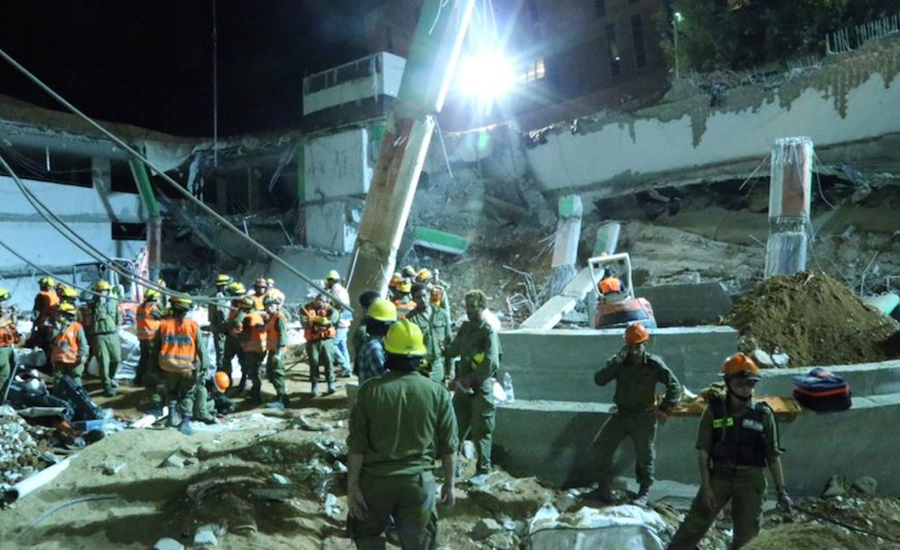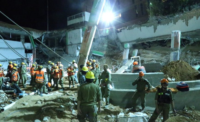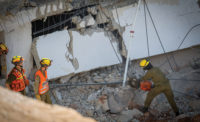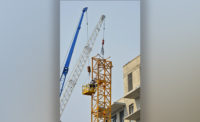With the bodies of six construction workers killed in the collapse of an underground parking garage in Tel Aviv now recovered, Israeli police are probing what caused the nearly completed four-level structure to pancake on Sept. 5—the country's worst construction accident in almost 20 years.
The four floors of the $30-million garage collapsed as work was under way at the site, which is located in a high-tech office complex in the northeastern part of the city.
“The collapse was due to either an engineering failure or faulty construction that was not in line with the engineering plans,” said Ran Cohen, head of safety at Israel’s Labor and Welfare Ministry, which has overall responsibility for safety regulations at the thousands of building sites throughout the country.
The country's Economy Ministry has jurisdiction over construction safety enforcement, but with only 18 supervisors for about 13,000 building sites, Israeli media reported that more than half of all sites remain uninspected.
The Israel Defense Forces took charge of the rescue operation, assisted by firefighters. Four cranes were brought in to assist the hundreds of soldiers and engineers at the scene.
The underground parking facility is being built by Danya Cebus, a subsidiary of Africa Israel Investments, one of the country’s largest construction firms.
The parent company confirmed that a concrete beam collapsed at the same site about two months ago, injuring two workers. Israeli police alleged that government supervisors were not sent to inspect the site, although government officials said they were not aware of the incident.
The police launched an investigation and questioned a number of senior officials at Danya Cebus. Labor Minister Haim Katz convened an emergency meeting on the collapse and on the wave of recent accidents at building sites around the country. About 32 people have been killed since the beginning of the year.
The accident is expected to generate new rules for stronger supervision of the construction industry. “The contractor is responsible for supervising the building site and it is not the responsibility of the municipality,” said Danny Kaiser, a former Tel Aviv chief engineer.
Danya Cebus CEO Ronen Ginsburg vehemently denied a report in the country’s largest newspaper Yediot Ahronot that he said in a 2013 arricle that the company decided to have an architect rather than an engineer oversee the project, as a measure to cut costs. Ginsburg claimed the story author had misunderstood him.
Construction of the 17,000 sq-meter, four-level underground parking garage began in November 2014 and was due to be completed by year’s end.





Post a comment to this article
Report Abusive Comment